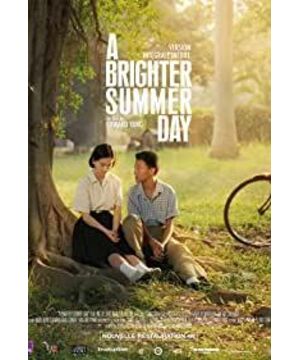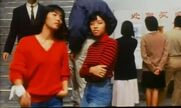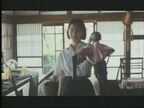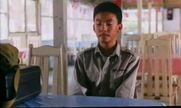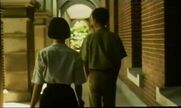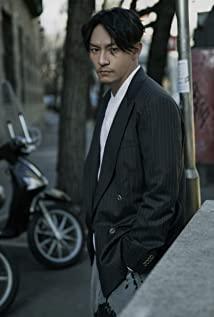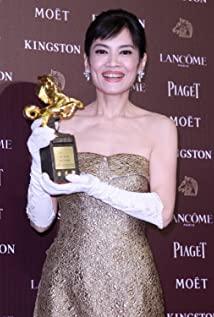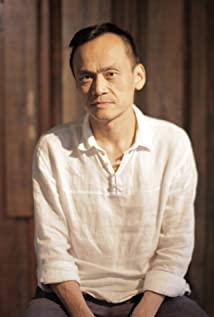When I watched "The Elephant Sitting on the Floor" before, I said that Wang Xiaoshuai or the directors of the previous generation would not appreciate Hu Bo's films that purely show their inner world, because they could not find an outlet for expression after leaving the era. , as if the "big era" and "individual heart" formed a huge split, and they could not understand and reconcile each other, which eventually led to the tragedy of director Hu Bo. And Yang Dechang's film is a perfect harmony between the expression of the extremely private inner world of youth and the social environment of the big era. Youth is a highly self-centered age, the center of the whole world is the self, and growth is to gradually relax the centralism of the self to other things, people, and the environment around it; in other words, it is necessary to gradually transform idealism for realism. When the environment of the big era was a mess, realism was immature in the hearts of young people, and personal idealism collapsed rapidly, which led to this tragedy in the movie. I privately think that the decline of the father and the difference of classes have led to the collapse of Xiao Si's real environment, while Hani's death, Xiao Ming and Xiao Ma's betrayal, and Xiao Cui's disdain all quickly destroyed Xiao Si's idealism. The occurrence of this kind of tragedy seems to have a sense of fate, and it is irresistible. From the first act, Xiao Si was not selected for the day part. After entering the night part, the picture changed from the bright daytime to the dark and depressing atmosphere, and the nighttime scenes began to increase. , the natural light began to decrease, and the first few scenes seemed to imply that Xiao Si's life must fall into the abyss. Yang Dechang is too powerful, like a sharp knife, through the display of small people and small events, he pierces the package of social disguise, allowing the audience to observe the cruelty of society.
I especially like the naturalness of Yang Dechang's shooting technique. The soundtrack of the whole film is brought in by the plot, without the soundtrack of inserted voice-over. The lens has almost no close-up, the use of medium and long-range shots, and the use of a third-angle lens in close-up shots, which perfectly sets off a third-party social observation perspective, making the audience unconsciously carry a kind of perspective throughout the film. Bystander or even indifferent attitude.
The director is particularly good at the construction of medium shots, especially the presentation of indoor scenes, such as the scene where the father beats his brother. The real feeling is that I obviously know that I am watching a play, but the point of view of the camera is from Xiao Si outside the house. What the audience sees is what Xiao Si sees, and all of a sudden, the audience is surprised by this "tragedy" With a sense of substitution, resulting in a subtle fading effect, this is really the work of a master! There is also the death part of Shandong, which seems to be a performance art performance on the stage of an installation. The reality is cruel and bloody illuminated by the flashlight. In the end, Xiao Si left only his back in the light and walked out, which seemed to indicate that he was heading for darkness. future. At the end, as if giving hope, Yang Dechang took a two-second shot, pouring cold water and dousing it all.
In addition, from the small to the big is a wonderful pen of Yang Dechang. The scene of the tank and the clip of the father being interrogated show the insignificance of people in the big era. In the end, the crying alone in the choir brings out the director's personal criticism of religion, or a reservation. But the expression of these things will not be overwhelming in the movie, on the contrary, it has become a good embellishment. Today's young directors, such as Han Yan, should really study these Taiwan New Wave films, how to use the dubbing of the scenes, and how to express multiple elements well. Decades ago, Yang Dechang already made a perfect template textbook.
View more about A Brighter Summer Day reviews


